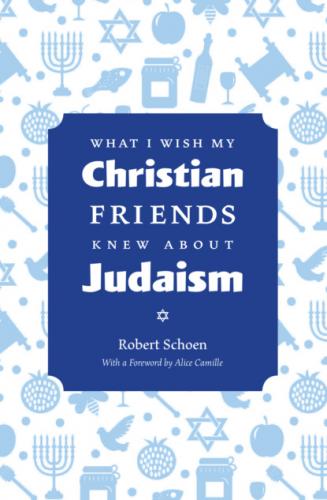A Jewish Funeral—Saying Good-bye to Uncle Harry
You Can Only Get a Divorce If You’re Married
Home Life, Jewish Beliefs, and Other Interesting Matters
Is a Kosher Hot Dog Really Kosher?
Creation, Heaven, Hell, and Life after Death
Mysticism and the Repair of the World
Money—Stereotypes, Charity, and the Scriptures
A Call for Understanding and Community
Glossary and Pronunciation Guide
As a father has compassion for his children,
So the Lord has compassion for those who fear
Him. For He knows how we were made;
He remembers that we are dust.
As for mortals, their days are like grass;
They flourish like a flower of the field;
For the wind passes over it, and it is gone, and its place knows it no more.
But the steadfast love of the Lord is from everlasting to everlasting on those who fear Him,
And His righteousness to children’s children,
To those who keep His covenant and remember to do His commandments.
The Lord has established His throne in the heavens,
And His kingdom rules over all.
From Psalm 103
A Psalm of David
Foreword
by Alice Camille
Dr. Robert Schoen and I met cute. I needed new glasses; he was the optometrist who provided them. In the course of the eye exam, I mentioned that I’m a writer. Immediately Bob produced an unpublished manuscript from a nearby cabinet, its printed pages neatly filling a ream box. The title was brilliant: What I Wish My Christian Friends Knew About Judaism. I had no doubt this book a) would be published, and b) should be read.
Taking the box home, I absorbed his chapters on my sofa. Once more, Bob improved my vision. Here I encountered the man I’d already met during the eye exam: pleasant-mannered, thoughtful, funny, sincere. I’d written books introducing Catholicism to the curious, so this genre was familiar territory: How to explain to outsiders the contents of your own heart? How to present what may seem strange so that it’s demystified—without losing its sacred character?
Bob’s approach is an invitation to that kind of conversation. He explains what it means to be Jewish and all the ways one might find oneself inside that rather expansive box. He offers plain and simple tidbits of history, belief, practice, and custom. As a Jewish man, alert to many aspects of Christian practice, he’s able to comfortably connect the dots and offer comparisons of concepts we share like confirmation, confession, priesthood, and liturgy. An avid student of Scripture myself, I was grateful for the chance to see the longer part of my Bible from his astute, and often wry, perspective.
Reading What I Wish ... has been the invitation to many more conversations since. Bob and I dove into our own Jewish-Catholic dialogue, one dynamic lunch at a time. In our enthusiasm for what we were discovering, we decided to take the conversation public, staging a dialogue Bob artfully entitled “Bob and Moses and Jesus and Alice.” Movie fans may appreciate the reference. We threw down an area rug, provided two easy chairs and a pole lamp as stage props. We tried to give the show a parlor-chat feel.
What we discovered that night, and on other occasions since, is how vast the chasm of unknowing between religions can be. Never mind that Christianity is to Judaism as the United States is to England. No matter our differences, we share a history that will always bind us together. But as Bob points out, it’s a mistake to imagine that the Jewish person you’re talking to knows the story of Jesus. Most Jews have never read what Christians call the New Testament. They have no knowledge of the gospels or Saint Paul. They only know the pogroms and persecutions of history Jews suffered in so-called
